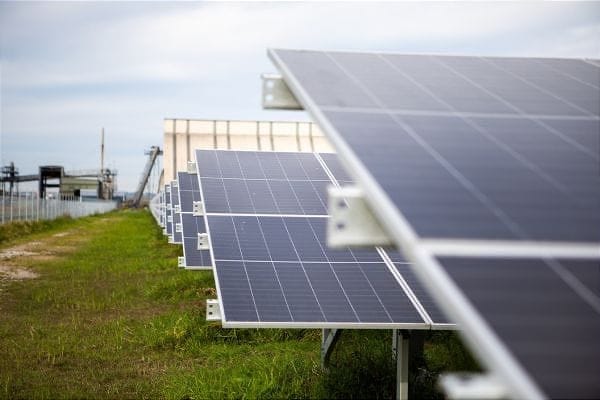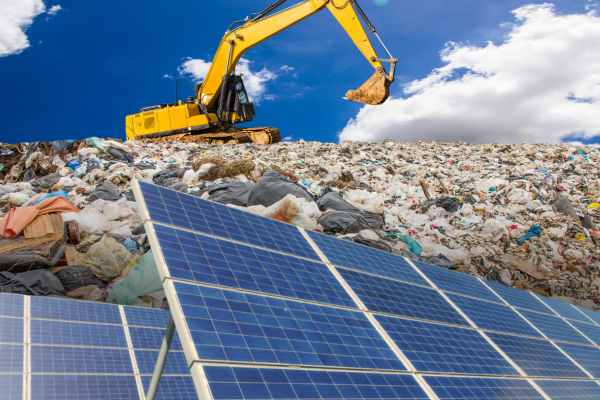End game for greenwash
Community groups and regulators are calling time on environmental claims that don’t stack up in the real world.

A landmark legal settlement has exposed key flaws in carbon offset marketing and raised concerns about misleading messaging.
In a first for Australia, electricity and gas provider EnergyAustralia has publicly acknowledged that its 'Go Neutral' products did not prevent harm to the climate – a key concession in a legal case brought by advocacy group Parents for Climate.
The case, now settled out of court, comes at a pivotal moment in the national conversation on greenwashing, as stricter regulation of sustainability claims begin to make their mark.
Parents for Climate had alleged that EnergyAustralia misled more than 400,000 customers by marketing fossil fuel-sourced energy as 'carbon neutral' on the basis of purchased carbon offsets. EnergyAustralia has now issued an acknowledgement that carbon offsets “do not prevent or undo the harms caused by burning fossil fuels”.
"Burning fossil fuels creates greenhouse gas emissions that are not prevented or undone by carbon offsets. This could have been made clearer to customers."
The company says it launched its Go Neutral product in 2016 with the objective of providing customers with a way to offset emissions generated by their electricity or gas consumption. However, where a residential customer opted into the Go Neutral product, their electricity or gas use was still sourced predominantly from fossil fuels.
"Burning fossil fuels creates greenhouse gas emissions that are not prevented or undone by carbon offsets. This could have been made clearer to customers," EnergyAustralia said.
Parents for Climate CEO Nic Seton described the acknowledgement by EnergyAustralia as a huge step forward for its 1.6 million customers. "It will set a new standard for the way carbon offset products are used by corporations and sold to consumers."
Legal experts say the case should influence future corporate behaviour. “Companies need to seriously consider whether the environmental claims they make stack up,” said lawyer David Hertzberg who represented Parents for Climate.
Sustainability sells
Nearly half of Australian consumers now take sustainability into account when making purchasing decisions, according to a 2024 report from the Australian Consumer and Retail Studies (ACRS) Unit at Monash Business School.
While businesses are keen to cite their green credentials, the Australian Competition and Consumer Commission (ACCC) warns that environmental and sustainability claims must be truthful, accurate, and supported by reasonable evidence – particularly when referring to future outcomes.
“We consider a business to be engaging in greenwashing where they use any claim that makes a product or service seem better or less harmful for the environment than it really is,” the consumer regulator says.
In August 2024 Mercer Superannuation (Australia) was ordered to pay a $11.3 million penalty for misleading investors about the sustainability of some of its superannuation investment options, promoting its ‘Sustainable Plus’ options as excluding carbon-intensive fossil fuels, alcohol, and gambling-related investments. However, financial regulator ASIC found the claims to be misleading, marking its first successful greenwashing case brought before the Federal Court.
Later in 2024, Vanguard Investments Australia received the highest penalty issued for greenwashing to date – a $12.9 million fine imposed by the Federal Court in September 2024. The case centred on misleading claims about the ESG exclusionary screens applied to its Ethically Conscious Global Aggregate Bond Index Fund.
Then in March this year, Active Super was ordered to pay a $10.5 million penalty by the Federal Court for investing in various securities that it had claimed were eliminated or restricted by its environmental, social and governance (ESG) investment screens.
Ocean-free plastic
Recycling and sustainability claims around plastic packaging have also come under the scrutiny of the consumer watchdog. In April this year, household goods giant Clorox Australia was penalised $8.25 million by the ACCC for marketing certain GLAD kitchen and garbage bags as being made from '50% ocean plastic' when the plastic was found to have been sourced from areas up to 50 kilometres inland in Indonesia. The ACCC found that more than 2.2 million mislabelled products were sold, misleading consumers about the product’s environmental impact.
This echoed a similar case in 2023 when the ACCC accepted a court-enforceable undertaking from MOO Premium Foods. The yoghurt maker had claimed its tubs were made from '100% ocean plastic', a statement the ACCC deemed misleading. The plastic was sourced from coastal areas in Malaysia, but not directly from the ocean. MOO cooperated with the investigation and agreed to remove the claims from its packaging and platforms, while also publishing corrective notices, the ACCC said.
The airline sector has also been in the spotlight. In March 2024, a Dutch court found that airline KLM misled consumers with an advertising campaign that overstated its environmental efforts. It found that some of the airline’s sustainability claims had been either too vague or overly optimistic about the impact of activities taken to reduce its emissions, such as using biofuel and planting trees.
Research and advocacy groups Climate Integrity and the Environmental Defenders Office lodged a formal complaint against Qantas to the ACCC in October last year focusing on the airline's ‘fly carbon neutral' product, its promotion of ‘sustainable aviation fuels’, and the credibility of its net zero transition.
Greenwashing refers to the practice of misleading consumers by overstating or misrepresenting an environmental impact. Common tactics include claiming carbon neutrality through the use of offsets without meaningfully reducing actual emissions, or implying that no environmental harm is caused. Airlines, for example, may promote carbon offset schemes or the use of sustainable aviation fuels while continuing to produce high levels of emissions. Similarly, financial institutions might market investment options as "ethical" despite holding assets in controversial sectors or overstating the rigour of their ESG screening processes. In consumer goods, greenwashing can appear in claims about the origin of ingredients, recycled plastics or the compostability of packaging materials, which may not reflect their full environmental impact.





